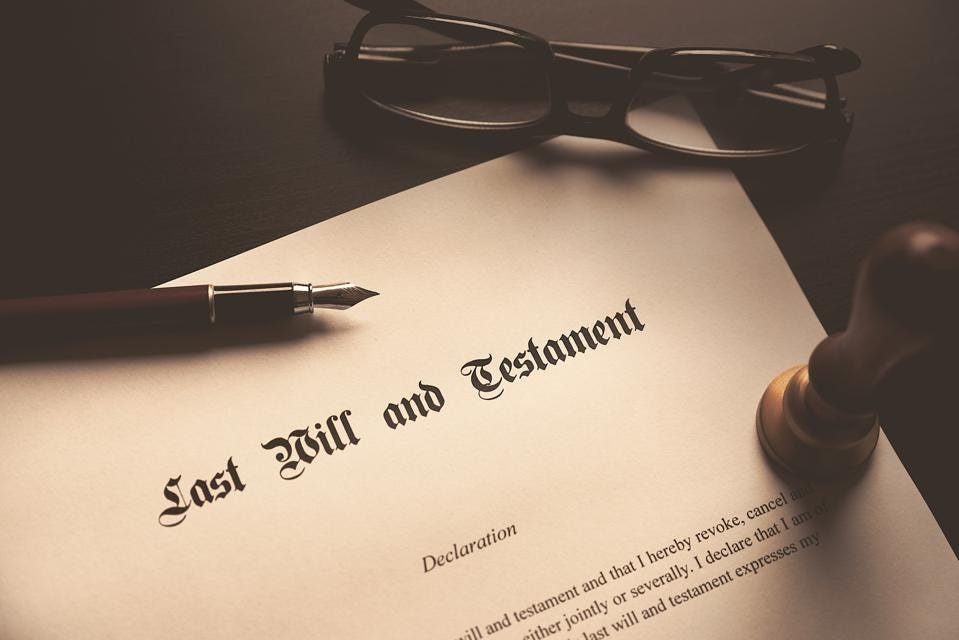Publications

Estate Planning In World Of Watch Collecting
Collectors can more effectively navigate the complexities of integrating watches into their estate planning strategies and appreciating he intricate balance between the financial and emotional value of watch collecting and its impact on estate planning. Watches hold significant financial and sentimental value and may prove to be strong investments in the coming years. Understanding their role in an estate is crucial.

Planning for Older Clients and Those with Disabilities
Effective elder planning requires a comprehensive approach addressing immediate safety needs, long-term care funding and asset protection. A systematic approach includes Legal and Financial Foundations, Asset Protection and Long-Term Care Funding Strategies, and Care Coordination and Safety Planning.

How To Turn Downturns Into Generational Wealth
Ultra-high-net-worth families often face unique opportunities during periods of market decline, high inflation, or recessionary pressure. This white paper explores a range of advanced estate and gift tax planning techniques for such environments, focusing on family-owned businesses, art/collectibles, and legacy real estate – citing relevant Internal Revenue Code sections, IRS rulings, case law, and academic insights To tie together the above strategies, here are a few illustrative scenarios demonstrating how they can be applied for maximum advantage when markets are down.

Navigating The Charitable Deduction Minefield: Insights From The IQ Holdings Case
As the landscape of charitable giving and tax planning becomes increasingly complex, adherence to IRS requirements is not just a recommendation but a necessity to safeguard against penalties and maximize tax benefits.
The IQ Holdings case highlights several critical requirements that taxpayers must meet to successfully claim charitable deductions under Section 170 of the Internal Revenue Code.

The Importance of Building Generational Wealth
The process of building generational wealth is intended to provide younger family members — and even those not yet born with financial opportunities and a head start to long-term stability. Generational wealth refers to financial assets passed down from one generation to the next. They include property, investments and businesses but also other assets, such as collectibles or royalties from oil and gas holdings.

IRS Form W-9 Changes and Their Impact on Trusts and Estates
In March 2024, the Internal Revenue Service (IRS) unveiled a revised version of Form W-9, Request for Taxpayer Identification Number and Certification, marking a significant update since its last revision in 2018. This change introduces new reporting requirements, particularly affecting flow-through entities such as trusts and estates. Refiliing may be necessary in certain circumstances.

Innovative Philanthropy: Beyond Traditional Grantmaking
Innovative alternatives that are reshaping how philanthropic goals are achieved
Here are the top three questions clients ask about alternatives to grantmaking:
1. What are the primary purposes that program-related investments (PRIs) within social welfare activities should achieve? PRIs within social welfare activities should primarily carry out one or more of the purposes specified under section 170(c)(2)(B) of the Internal Revenue Code 2. How can a 501(c)(4) organization engage in political activity and lobbying while keeping its status as a social welfare organization? 3. What are the tax implications and operational considerations when using non-501(c)(3) structures for philanthropy?

Corporate Transparency Act: Updating Legal and Other Documents
Practitioners need to modify their procedures to accommodate new filing requirements of the Corporate Transparency Act (CTA) took effect Jan. 1, 2024. Hers are practical steps practitioners should take to modify their practices to accommodate the new CTA requirements.

Navigating The Evolving US Estate Planning Landscape
Estate planning has evolved into a vibrant field marked by substantial transformations in recent years. These changes are propelled by updates in legislation, technological advancements, and shifts in societal norms. As a trust and estates attorney, I closely monitor these trends and understand the significance of staying abreast to offer superior service to my clients. Here are the key topics in contemporary estate planning and the advantages of engaging with either large or boutique law firms.

Generative AI: Revolutionizing Professional Services For Wealthy Families
The integration of Artificial Intelligence (AI) into professions like law, accounting, and investment management has been evolving over several decades, with significant acceleration in recent years. Here's a brief overview of AI's impact on legal matters.

Planning For Estates That Contain Firearms
Estate planning involving firearms requires careful consideration and adherence to legal requirements. By understanding the legal issues, choosing the right executor or trustee, considering a gun trust, keeping accurate records, and exploring buyback programs, you can ensure that the transfer of firearms in your estate plan is done legally and safely. Consulting with an attorney experienced in firearms and estate planning can provide valuable guidance throughout the process.

What to do When You win the Lottery
Receiving a windfall is both exciting and overwhelming; something estate planners should anticipate while creating an estate plan for their client. Even smaller windfalls can be a life changing event. Here are some recommended actions to consider taking to manage your newfound wealth responsibly.

Aretha Franklin’s Estate: Why Copyrights Require Estate Planning
The Aretha Franklin estate is a high-profile, and expensive, lesson in how not to manage copyrights in an estate. These copyrights should be considered assets and an integral part of the client’s estate. Such planning includes the management and distribution of copyright assets after the copyright owner passes away. Proper estate planning can ensure the protection and transfer of copyright ownership, as well as provide for the financial well-being of heirs and beneficiaries.

What Are the Duties of A Trustee?
Trust Agreement is the written document directing the management of the property, the payments of income and principal, and the scope and duration of the Trust. What are the Duties of the Trustee? The duties of the Trustee arise from the Trustee’s obligation to carry out the Grantor's intentions in creating and funding the Trust. There are five general duties of the Trustee – to be prudent, to carry out the terms of the Trust, to be loyal to the Trust, to give the Trust their personal attention, and to account to the beneficiaries of the Trust.

Strategic Estate Planning for UHNW Individuals
The economic, environmental, social, and political situations are and will remain, uncertain. The federal estate tax reverts back to $5 million after 2025. States and the federal government are increasing income tax rates, and inflation erodes accumulated wealth. If you are an advisor to UHNW individuals, you should ask, will their estate plans work in the face of these uncertainties?

Art and Art Funds as Alternative Investments

Tax Planning for Stock Options
Stock options, that is the contractual right to buy the stock of an employer by an employee at a discount price, remains a popular way for companies to compensate employees without incurring an immediate financial cost, and for employees to receive some participation in the equity of the company without incurring immediate income taxes. If you have stock options, whether Qualified or Non-Quantified, is important to consider not only when you might exercise the options during your lifetime, but also how you might hold the options after your death.

Exiting The US: Procedure And Taxes
A number of US citizens talk of leaving the country, few understand how complicated and lengthy the process can be. Covered expatriates
The law covers people who leave and are either: 1) US citizens or, 2) long-term permanent residents who have held green cards for eight of the last fifteen years who give up their green card. Both are subject to an immediate "Exit Tax" on unrealized gains on their assets, both in the US and worldwide, including grantor trusts and future gifts to US citizens and residents.

What Is A Trust?
What is a Trust? A Trust is created when you transfer the financial benefit of property to a third party while keeping the legal ownership and control by appointing themselves, a financial institution or another individual as the Trustee. In short, a Trust is set up by a Grantor, managed by a Trustee, and benefits the beneficiaries. Separate people can hold each of these roles, or the same person can hold all three.

What Is A Will?
Why should you have a Will?
A Will makes the transfer of your personal and real property according to your wishes into an orderly and seamless process at your death. The Will can be as simple or as complex as your desires require; but in all cases, it should clearly define what your assets are, to whom you wish those assets to go and who you nominate to administer your estate. This is the short answer to the question as to what a Will is. If you have other specific questions, you should consult your estate planning professional.
